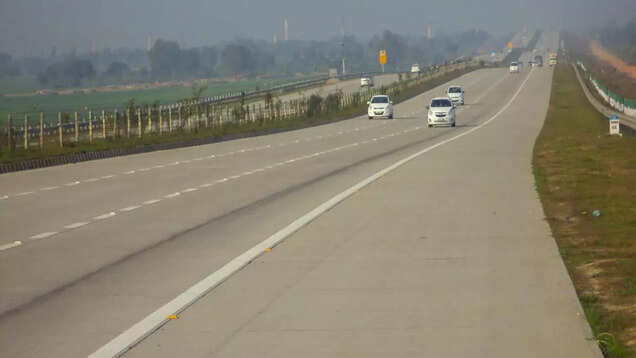
In a significant development, the 262-km-long Bengaluru-Chennai Expressway (BCE) is nearing completion, which will drastically reduce travel time between the two major cities. This new route, officially known as NE-7, will cut the journey down to two to two-and-a-half hours, a stark improvement from the current seven to eight hours.
Additionally, the expressway will shorten the distance between Bengaluru and Chennai by 80 km, with a permitted speed of 120 km/hr, enhancing both efficiency and safety.
Union Minister of Road Transport and Highways Nitin Gadkari recently announced that Prime Minister Narendra Modi will inaugurate the expressway before December 2024. Initially, the estimated completion date was March 2024. The expressway, constructed at a cost exceeding INR 17,930 crore, will pass through three states: Karnataka, Andhra Pradesh, and Tamil Nadu.
Read more: Top 6 walkable cities around the world where 10,000 steps a day is a breeze
Key cities along the route include Hoskote, Malur, Bangarapet, Kolar Gold Fields, Palamaner, Venkatagirikota, Chittoor, Bangarupalem, Ranipet, and Sriperumbudur.
The BCE features an eight-lane highway for 240 km and an elevated stretch of 22 km. A notable segment is the 21 km four-lane double-decker elevated road connecting Chennai Port to Maduravoyal, built at a cost of around INR 5,850 crore. This section is designed to ensure a seamless flow of goods to and from Chennai Port, bolstering the region’s economic infrastructure.
Read more: From beaches to hills: Where to catch the best sunsets in India
In addition to the BCE, the region will benefit from other infrastructure projects. The 94 km long highway from Neraluru to Dharmapuri (NH-844), constructed at a cost of around INR 3,870 crore, and the 31 km two-lane highway connecting Meensurutti to Chidambaram (NH-277), built at a cost of around INR 720 crore, will enhance connectivity and support continuous travel across the region.
Currently, there are three primary routes between Bengaluru and Chennai: Old Madras Road, via Hosur and Krishnagiri/Golden Quadrilateral, and a third route passing through Kolar-KGF-Kota and Vellore. Of these, the Golden Quadrilateral route, spanning approximately 380 km, is the most frequently used.
The National Highway Authority of India (NHAI) is overseeing the construction of the BCE under the Bharatmala Pariyojana programme. The foundation for this transformative expressway was laid by Narendra Modi in May 2022, with an initial budget of over ₹14,870 crore.
Once completed, the Bengaluru-Chennai Expressway will not only reduce travel time, but also significantly enhance regional connectivity, boost economic activities, and improve the overall travel experience between these two bustling cities.
